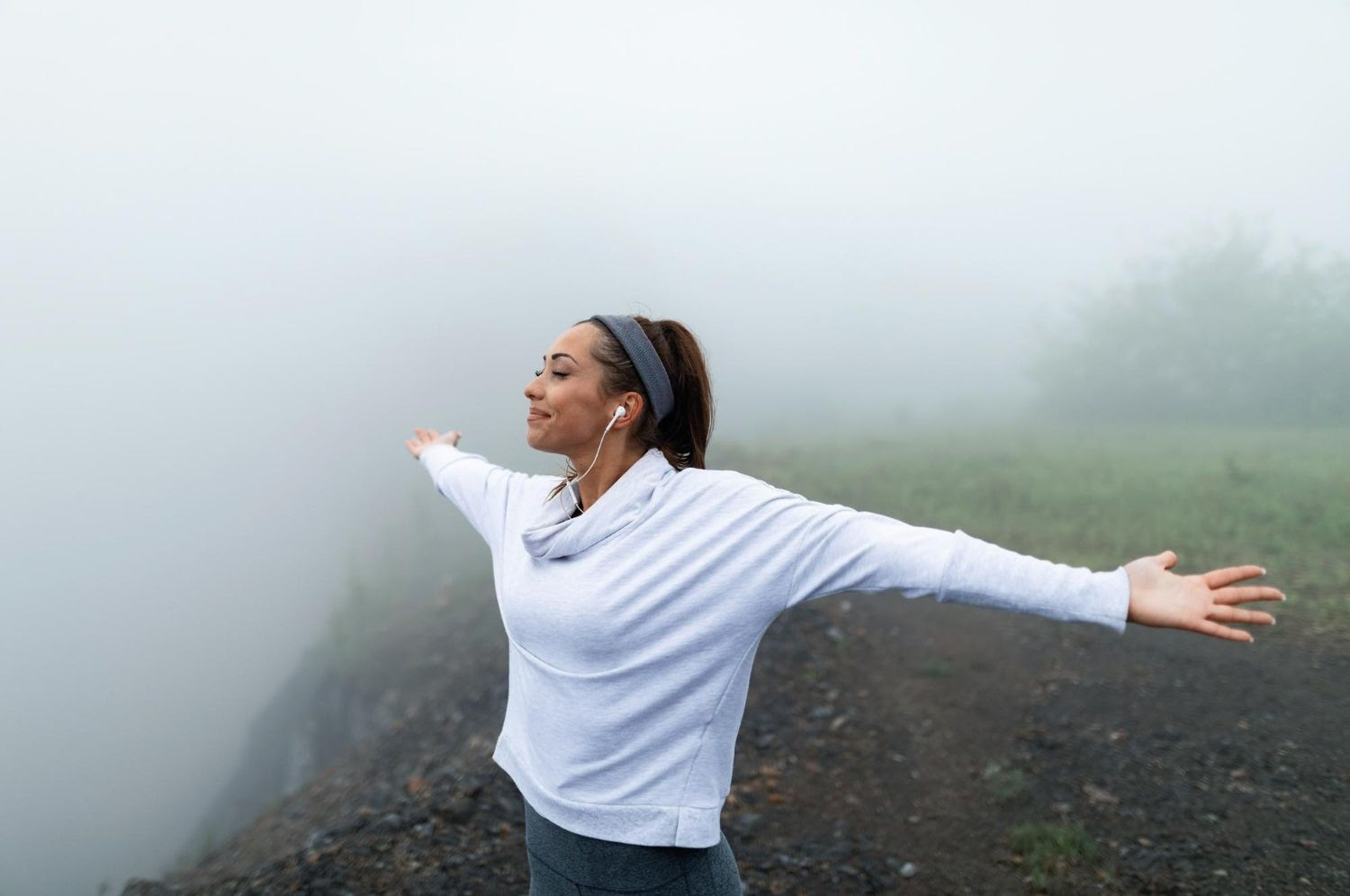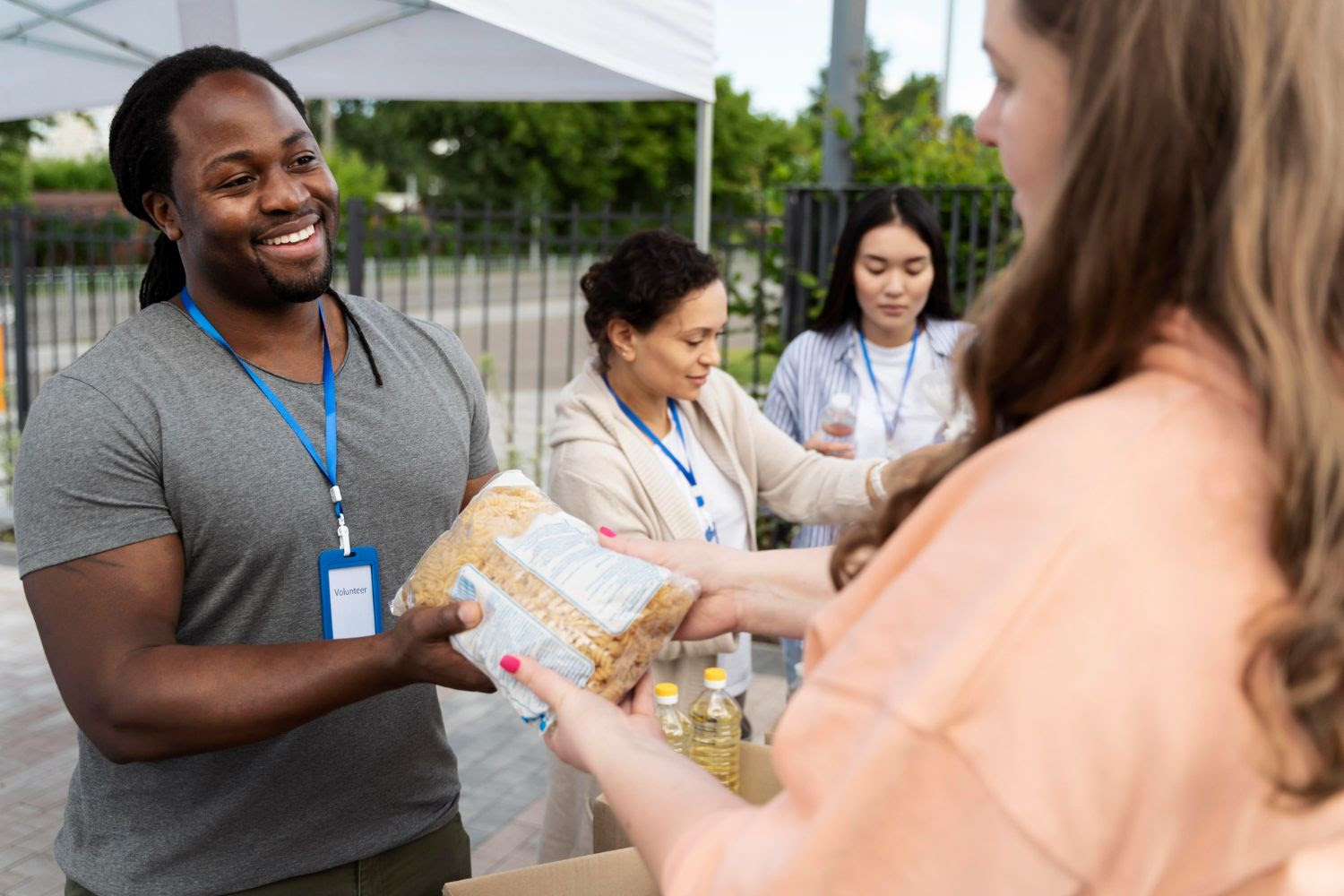Creamy Thai Carrot Salad

Sauce Ingredients:
- 1/2 cup water
- 1/2 cup raw cashews
- 2 tbsp lemon juice
- 1 tbsp tamari
- 1 small piece ginger
Bowl Ingredients
- 1 cup carrot noodles
- 1 cup squash noodles
- 1/3 cup chopped cilantro
- red chili flakes to garnish
Directions:
- Blend all sauce ingredients in the blender until creamy.
- Spiralize the veggies with the spiralizer and set aside until ready to use.
- Pour sauce over noodles, garnish and serve fresh!
For more recipes by Chef Jenny Ross check out her blog here!
5 Ways to Slow Down Aging
Aging happens to all of us. It’s inevitable. Aging can be due to cells no longer able to function optimally. The environment we live in and our lifestyles can also affect how we age. According to Johnny Bowder, author of The Most Effective Ways to Live Longer, “Only about 5 to 20 percent of the aging process has to do with our genes. The rest has to do with how we treat our bodies, which determines whether, like a light switch, we turn the good genes on and the bad genes off.” Here are 5 ways shared with us by Dr. Amen to avoid accelerating the aging process.

1. Lessen Exposure to Free Radicals
Not unlike the way rust attacks a car, free radicals attack our cells, damage our DNA and accelerate aging. Things to avoid: cigarettes, trans fats, excess sun exposure, charred meats, and pesticides. Though fruits and vegetables are great sources of antioxidants that fight free radicals, try to buy the “dirty dozen” (produce with highest chemical residue) in organic form:
• Peaches
• Apples
• ...
Samoa Cookie Bars

Ingredients
Shortbread Cookie:
- 1/3 cup coconut oil
- 2 tbsp maple syrup
- 1 cup almond flour
- 1/4 cup coconut flour
- 1/4 tsp salt
Caramel Coconut Layer:
- 1 1/2 cups unsweetened shredded coconut, toasted
- 1/2 cup almond butter (or nut/seed butter of choice)
- 1 cup pitted medjool dates, soaked for 10 mins
- 1/4–1/3 cup water
- 1 tsp vanilla extract
- 1/4 tsp salt
- 1/2 cup Hu Gems chocolate
Directions
- Preheat the oven to 350ºF.
- Mix together all the cookie ingredients.
- Press the dough into the bottom of a loaf pan lined with parchment paper. Alternatively you can roll/cut or press into individual cookies.
- Bake for 13-15 minutes (a little less for cookies, try 11-12) at 350ºF until golden brown. Cool.
- Combine the soaked and drained dates, almond butter, vanilla, and salt in a food processor. Process slowly adding water as needed until you have a thick smooth paste.
- Pulse in the toasted coconut.
- Spread on top of the cookie base. Refrigerate or freeze until firm.
- Melt the ...
5 Ways to Stay Motivated to Exercise
Mark Twain said “The secret of getting ahead is getting started.” This applies to any goal we want to achieve in life. Sometimes though life happens, we get stuck, and our motivation is nowhere to be found. This is when we need to whip out our toolbox and dig into the tools to get us back on track. One of the important areas where we need to stay motivated is getting some exercise and movement. Health expert Tana Amen has some excellent suggestions on how we can keep the fire going when it comes to exercise.
Make a list of the benefits you get from being physically active.
I’m a big fan of making lists of pros and cons, and doing this for exercise can help motivate you to get moving. Sure, decades of research show that exercise is a wonder drug…without the side effects. It improves moods, reduces stress, and boosts brain health. But I want you to create a personalized list. How does being active make you feel? More energized? Better focus? Brighter moods? On your list, also be sure to ...
Avocado Angel Eggs by Chef Mareya

Ingredients:
12 cage free or organic hard boiled eggs, peeled and cooled
2 ripe avocados, cut in half, pit scooped out
2 tablespoons fresh lemon juice
1 teaspoon dry mustard
1 teaspoon garlic powder
1/2 teaspoon white pepper
1/2 teaspoon sea salt
1 Tablespoon Italian flat parsley, minced
2 tablespoons green onions, minced (reserve 1 teaspoon green part for garnish)
2 Julienned pieces of nitrate and nitrite-free prosciutto (optional)
Directions:
- Slice each egg in half lengthwise taking care not to tear egg whites, and scoop egg yolks into a medium bowl.
- Scoop avocado flesh out of skin and add to bowl, with lemon juice, dry mustard, garlic powder, smoked paprika, white pepper and sea salt.
- Place mixture in a food processor and pulse until creamy; add a few drops of water if more liquid is needed.
- Add minced chives to mixture and spoon into halved egg whites. For a beautiful presentation, place egg and avocado mixture into a pastry bag and pipe into each half using a d ...
Habits to Help You Live A Happier Life Part 3
The past two weeks we shared an article series about habits that will help you live a better and happier life. We’re wrapping it up with a list of habits that you can do on a regular basis. Let’s begin.

Give back
If you find that giving daily compliments provides a needed boost to your mood, consider making a monthly routine of giving back on a larger scale. Maybe that’s helping out at a food bank on the third weekend of every month or offering to watch your friend’s kids one night per month.
Take yourself out
No one to go out with? Well, what rule says you can’t go out alone? Consider going to your favorite restaurant, taking in a movie, or going on that trip you’ve always dreamed of. Even if you’re a social butterfly, spending some deliberate time alone can help you reconnect with the activities that truly make you happy.
Create a thought list
You arrive for an appointment with 10 minutes to spare. What do you do with that time? Pick up your cell phone to scroll through social med...
Habits to Help You Live A Happier Life Part 2
Here’s part two of the article on habits to help you live a happier life. Part one talked about daily habits you can start working on. You can read it here.

Declutter
Decluttering sounds like a big project, but setting aside just 20 minutes a week can have a big impact. What can you do in 20 minutes? Lots.
Set a timer on your phone and take 15 minutes to tidy up a specific area of one room — say, your closet or that out-of-control junk drawer. Put everything in its place and toss or give away any extra clutter that’s not serving you anymore. Keep a designated box for giveaways to make things a little easier (and avoid creating more clutter). Use the remaining 5 minutes to do a quick walk through your living space, putting away whatever stray items end up in your path. You can do this trick once a week, once a day, or anytime you feel like your space is getting out of control.
See friends
Humans are largely considered social beings, and while the research is mixed on how exactly soci...
Garden Pesto Chicken Pasta

Ingredients:
Noodles & Veggies
- 2 tablespoons avocado oil
- 9 chicken thighs, boneless and skinless, trimmed of excess fat and cut into cubes
- 1 cup white onion, finely diced
- 1 ½ cups cooking liquid such as bone broth or water
- 1 cup canned coconut milk
- 1 bunch asparagus, sliced into ¼-inch rounds
- 4 large zucchini, spiralized into noodles or ribboned with a peeler
- ⅓ chili pepper, thinly sliced (optional - I used a fresno chili)
- 6 ounces buckwheat soba noodles
Pesto
- 3 ounces basil leaves
- 5 garlic cloves
- ¼ cup nuts, such as almonds or walnuts
- 1 teaspoon sea salt
- ¼ teaspoon black pepper
- ¼ cup nutritional yeast
- ¼ cup olive oil
Optional Garnish
- Sprinkle of sliced raw almonds
Directions:
1. Place a large pan over medium heat and warm the avocado oil. Pat the chicken thighs dry with a paper towel. Once the oil is hot, add the chicken thighs and brown on all sides for about 10 minutes.
2. Add the diced onion to the chicken and sauté for an additional 5 minute...
Habits To Help You Live A Happier Life Part 1
We know about our bad habits. Sometimes these habits can be firmly established and will take time to unlearn. However, our values and good habits are also deeply rooted in us and nurturing them or building new good ones can certainly help us live happier. At Healthline, they came up with a daily, weekly, monthly and yearly list of positive habits to choose from and start working on. This week we’ll focus on the daily list. Choose one or two habits that you feel you can improve daily and see how this week goes for you. Ready? Set. Go.

1. Smile
You tend to smile when you’re happy. But it’s actually a two-way street. We smile because we’re happy, and smiling causes the brain to release dopamine, which makes us happier. While not completely foolproof, researchers have found that the link between smiling and happiness could be attributed to the “facial feedback hypothesis,” where facial expressions may have a modest influence on emotions.
That does not mean you have to go around with a...
Mango Gazpacho

Ingredients:
- 1 cup diced cucumber peeled
- 2 diced tomato
- 1/2 cup mango
- 1/2 cup diced red bell pepper
- 1/4 cup fresh basil
- 1 clove garlic
- 1 pinch sea salt
- 2 tbsp olive oil
Directions:
- Add all the ingredients, except for the olive oil, into the blending container and secure the lid.
- Blend on high for 2 minutes.
- Add the olive oil while your ingredients are blending for another 20 seconds. Enjoy and serve!
This recipe is by Chef Jenny Ross. For more of her recipes click here.

